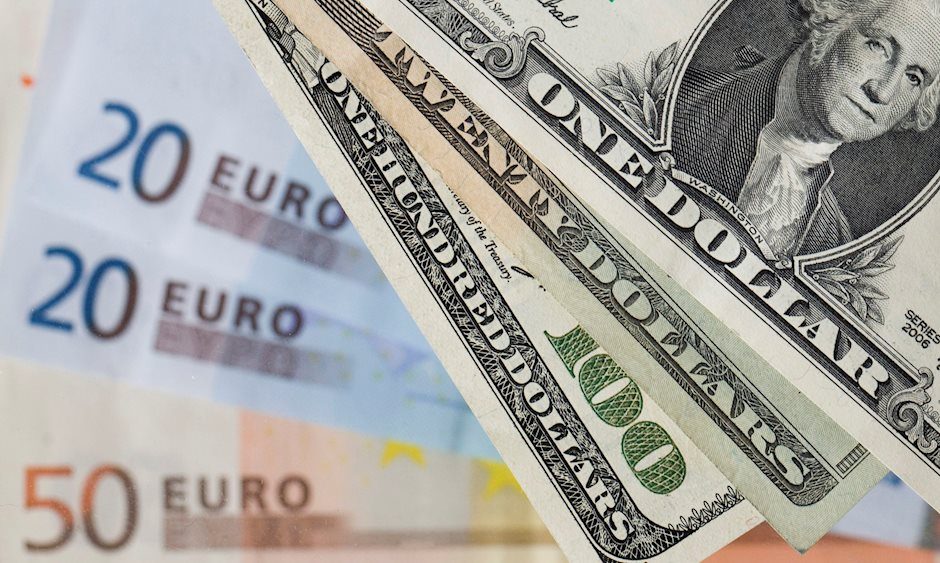Turkey’s Crisis Could Send Euro Lower

The crumbling of Turkey’s economy could drag eurozone down, short EUR/USD?
Turkish Lira went into freefall last Friday after President Trump slapped tariffs on Turkey’s steel exports.
The trouble Turkey is facing is not just a localised issue, but a contagious one. European Central Bank is worried about non-hedged exposure of European banks to Turkish companies and if Turkish banks fail, there's no question that it will affect markets around the world.
Investors are increasingly concerned about the $350b in foreign debt held by Turkish banks and companies, and their ability to finance it as the currency weakens and inflation soars. As the crisis has deepened Turkish consumers have faced sharply rising food, fuel and medicine prices. The inflation rate is expected to jump rapidly from the current 15.4% official rate. If foreign lenders stop rolling over their loans to Turkish banks and companies, the whole economy could grind to a halt in what investors call a “hard landing" scenario. If that happens, economists are starting to predict that Turkey will eventually be knocking on the IMF’s door.
Banco Bilbao Vizcaya Argentaria, UniCredit and BNP Paribas have the greatest exposure to Turkish debt and many of their loans are unhedged. According to data from the Bank of International Settlements, Spanish lenders are the most exposed followed by Italian and French banks. Exposure to Turkey could affect European banks’ bottom lines “and could have a domino effect throughout Europe as people begin to pull out of those banks and into the US.
Just this year, Lira has lost 33% of its value and its cost of servicing its debt has risen to the highest level in 9 years. If Turkey's economy crumbles more migrants could be headed to the EU, making Turkey a political and economic crisis for the region.
Apart from the political risk euro is facing from Turkey, there are a few reasons why we feel euro could remain weak for the longer term.
-
Interest rates are expected to remain unchanged till late 2019.
ECB has been running their QE program for 5 years now and has started to taper their QE easing policy by the end of 2018. ECB unwillingness to raise rates any time soon was due to the uncertainty of eurozone economy. The interest rate differential between US and Euro rates ranging 2.65-2.90% is expected to weaken euro.
-
Weak economic data
Factory orders and industrial production in Germany has been far from impressive. Eurozone GDP growth weakened to 0.3% in Q2 following a similar drop in Q1.Furthermore, there was a slump in overseas demand which led to a 4% fall in new orders placed with German manufacturers between May and June and driving this drop in orders has been the slowdown in the Chinese economy.
The dollar strengthened last Friday as investors started to pull out from euro banks and putting it into US. The greenback acts as a safety net for investors who are avoiding hold euro.
Our Picks
EUR/USD – Slightly Bearish.
As long as 1.1500 resistance holds, this pair could go lower due to the political risk eurozone is facing from Turkey’s meltdown. This pair could hit 1.1300.
USD/JPY – Slightly Bullish.
We saw a breakout on a descending triangle formation. If price manage to hold at 110.50 price regions, we can expect more upside to come.
XAU/USD (Gold) – Slightly bullish.
As Turkey’s meltdown continues to threaten the eurozone and the rest of the world, we could see fund flow into safe haven for now.
Author
%20V2_XtraSmall.jpg)
Wayne Ko Heng Whye
Fullerton Markets Ltd
As Head of Research & Education in Fullerton Markets, Wayne provides thought-provoking analysis and trading ideas to thousands of clients worldwide.




















